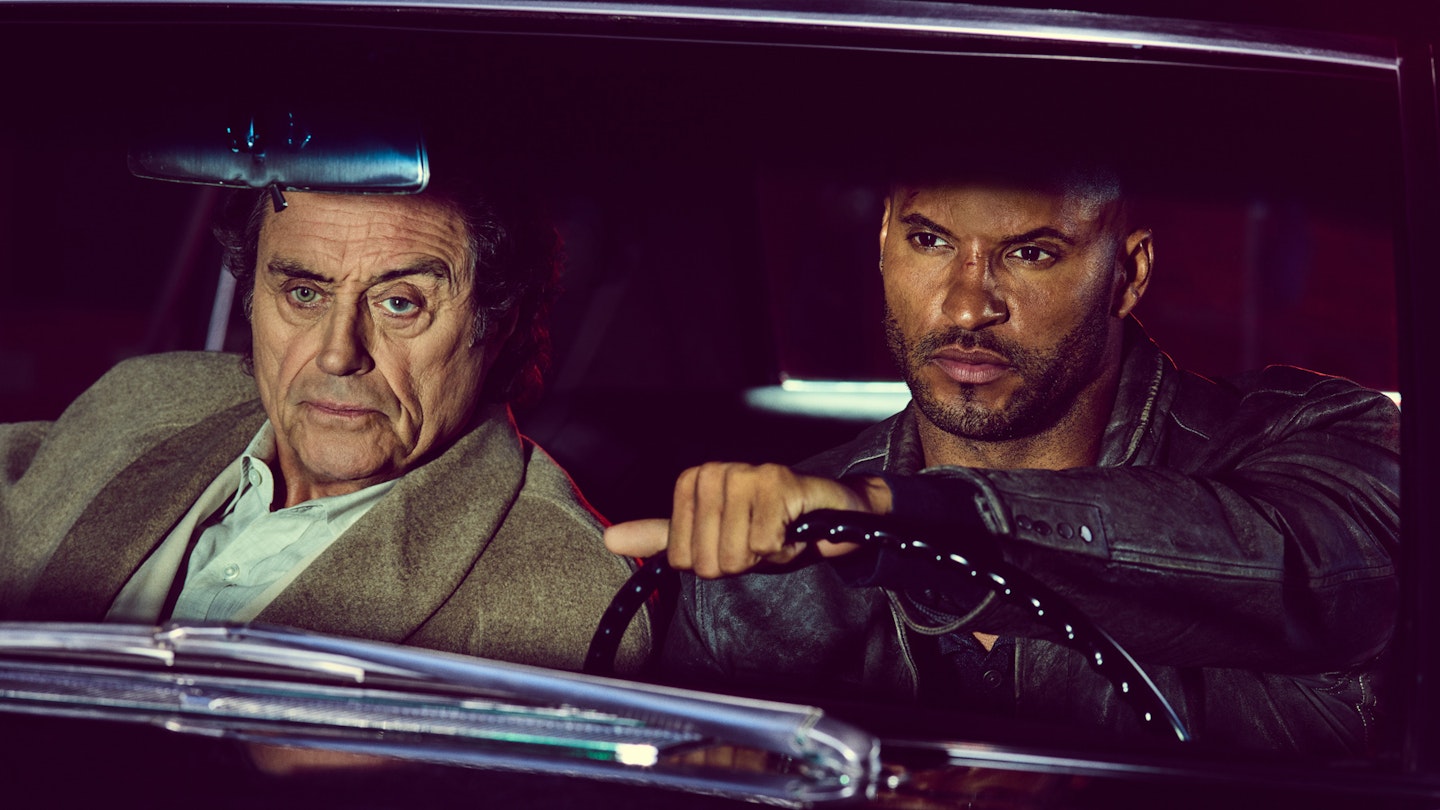Neil Gaiman's American Gods — chronicling the coming war between the gods of old and a new wave — has come to spectacular (albeit surreal) life on the Starz series adapted by Bryan Fuller and Michael Green.
In this exclusive interview, Fuller and Green provide insight into the making of the series, and a discussion of what each actor has brought to their roles.
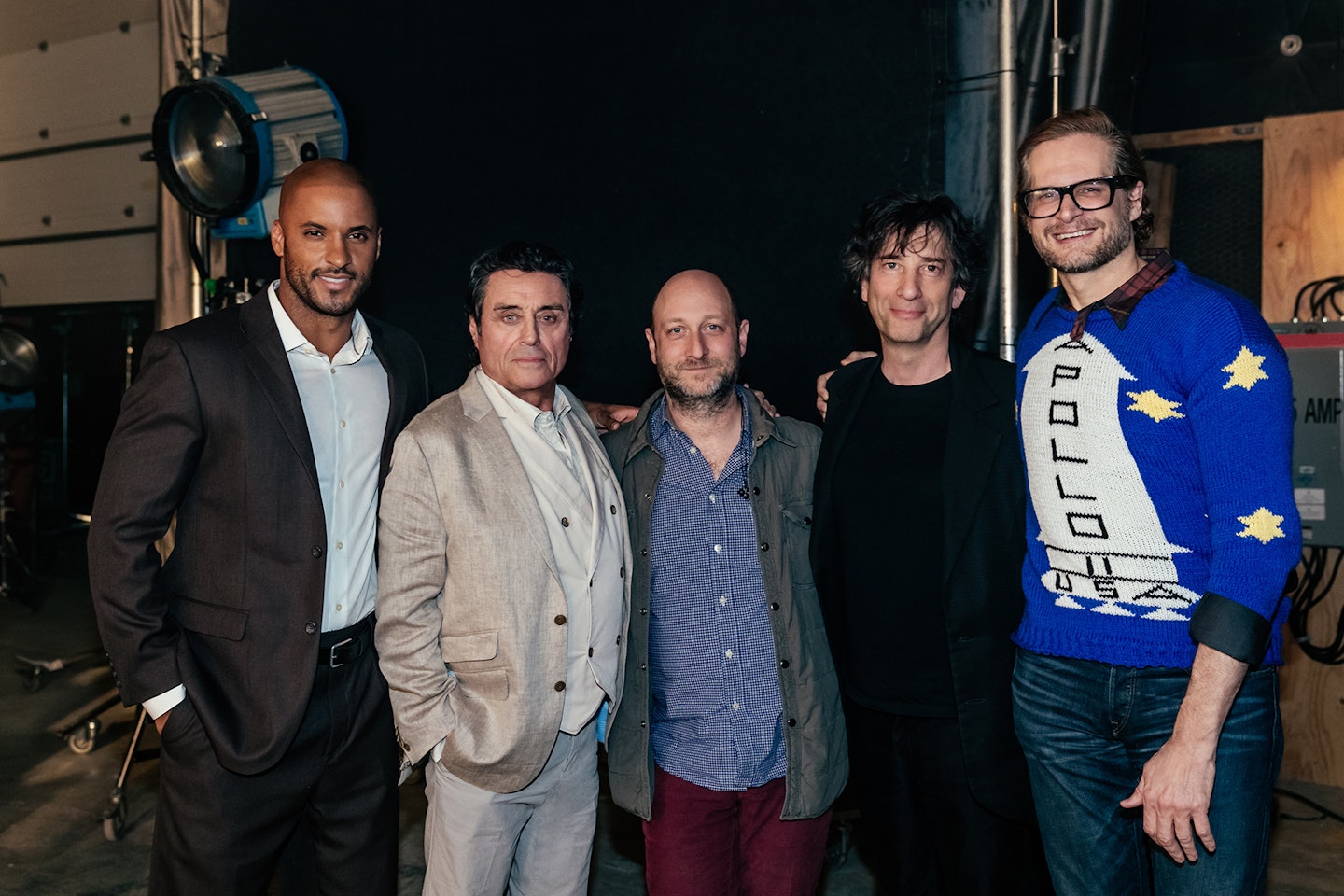
What’s been the evolution of the show from what you imagined in the early stages, to what you've got now with the finished product?
Bryan Fuller: The expansive use of visual effects to tell our stories was something that we were very excited to play with — until we realized that would keep us busy up until the very last day of post on the show. That was perhaps more consuming than we thought it would be, so be careful what you wish for when you wish for a big visual effects budget.
Michael Green: It's a little bit of asking a magician, what's the hardest thing about sawing a lady in half, and the answer is, "Well, getting the table onto the stage is really heavy."
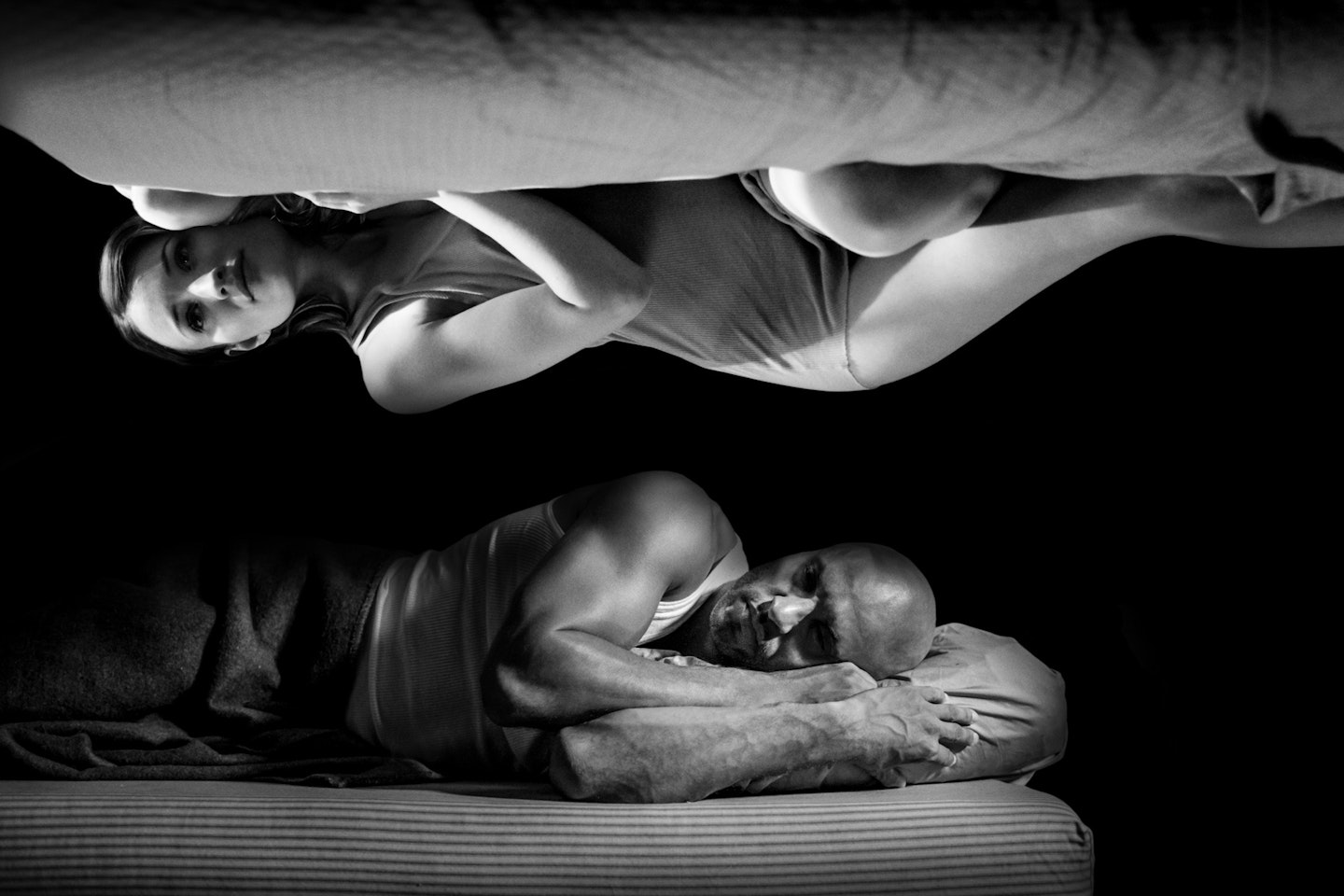
The rest is easy, is that what you're saying?
Green: Comparatively. The physical taxingness of it was a lot. The rest of it is relatively easier.
So, what’s the story here? Do you guys go out of your way to just get weird with this stuff? Bryan, you did Hannibal, obviously, and that had its own surreal quality to it. It almost seems like you sit there saying, "How can we fuck with the audience's mind?"
Fuller: No, not really [laughs]. I think our imaginations are fairly vivid and when we're reading something that is as inspiring as Neil's novel, it's hard not to grab the baton and run. If anything, we've checked each other a couple of times where it's, like, "Uh, that may be too big and too weird," and for us to say that to each other, you know it's big and weird.
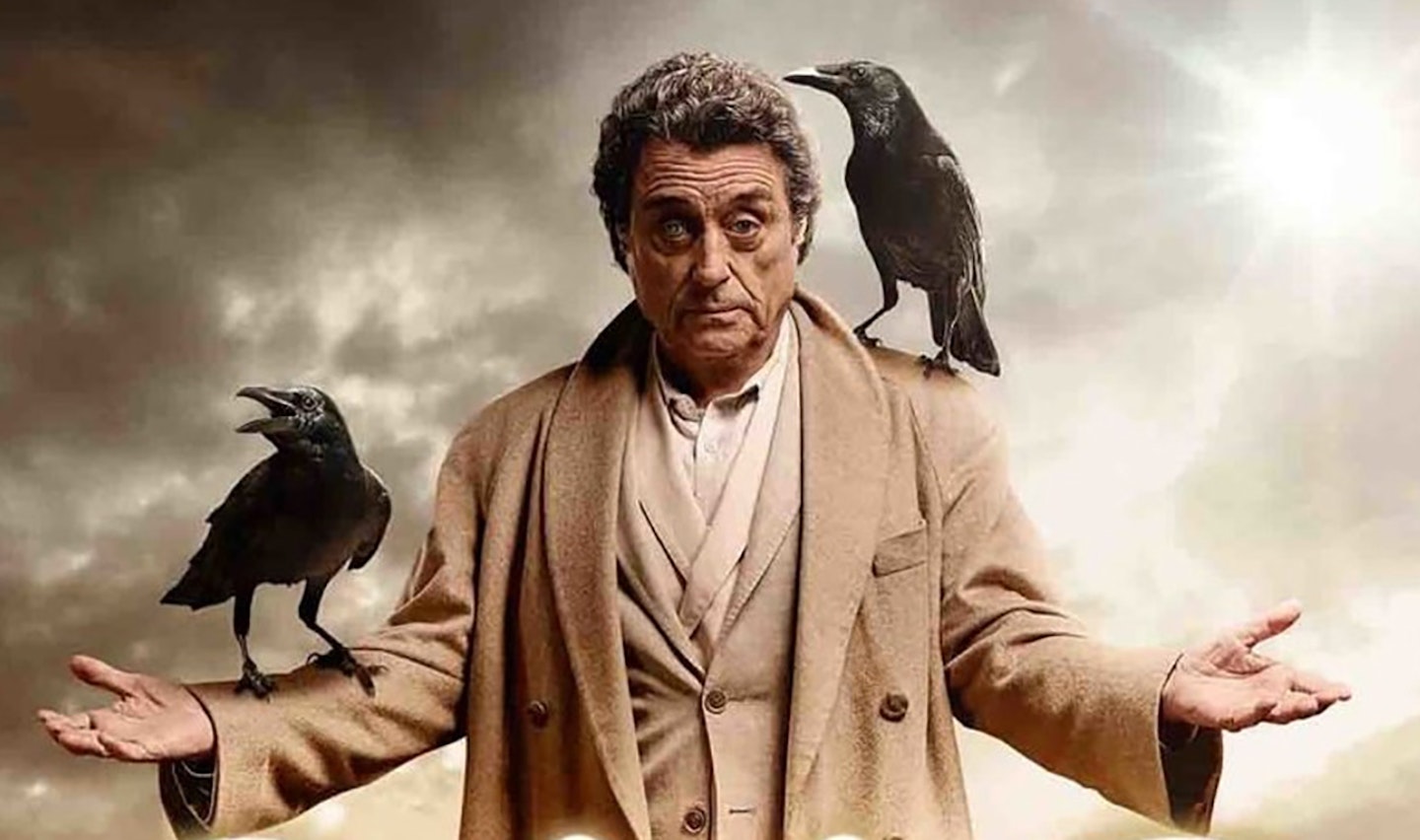
Is this just the way your minds work?
Green: It's more where we live and we have the opportunity to do it, but it's also why we were drawn to Neil's writing and specifically this book is that it allowed us to bring imagination to life, even if it was going to be lavish, difficult, expensive.
Michael, is that something that you're naturally drawn to, that type of storytelling?
Green: Bryan and I share a lot of taste and style, but I will say as a fan of Hannibal and of Bryan's in the intervening years when we weren't working together, I would often get together with him and just ask him, "How do you accomplish these things?" Bryan as a producer has an incredible and enviable track record of taking the ideas in his mind and being able to share them with other people by actualizing them. That is as good a definition of producing as I can muster, where it's one thing as a writer to take an idea in your head and get it on the page clearly so other people can experience that idea. It's another thing to be able to do that with visual images.
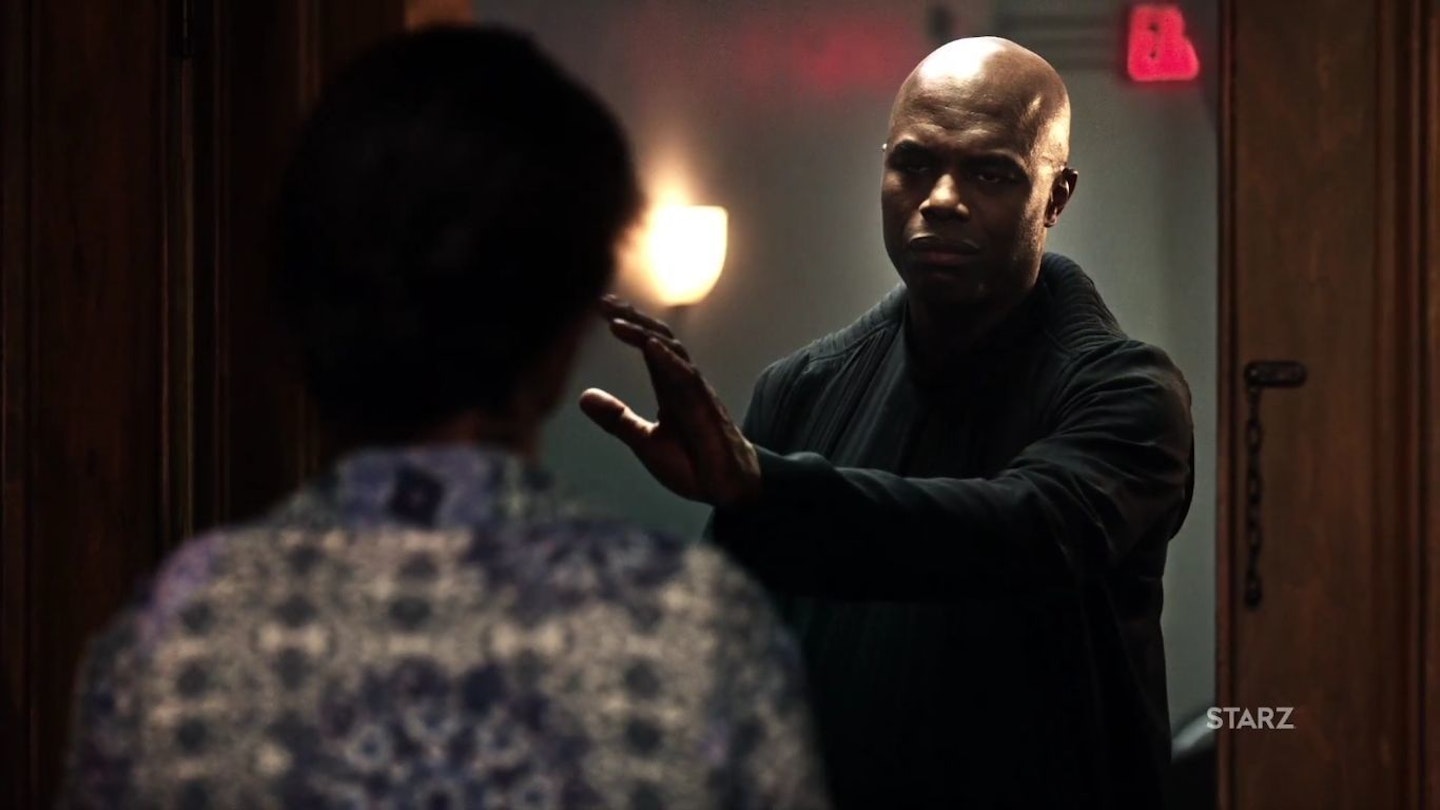
There were images on the show, sequences on the show, that Bryan described to me when we were in the writing phases and I could imagine very vividly, but the process of being able to actually put that on the screen takes an incredible amount of work, dedication, clarity of purpose. Every idea can continue to get better as more time goes on. I've been very much enjoying working with Bryan and learning how he manages to extract from his own mind the best idea and extract from the talented artists we work with the visual representation of those ideas.
Fuller: One of the things that we've learned on the show is we needed a long runway, because a lot of these ideas that we're working on required a certain amount of experimentation to get right, and there were alleys that we went down regarding some visual effects. When we got to the end, we're, like, "This doesn't work. We need to back up and try something else, because it's not holding up to the standards that we have.” Or it was an ambitious idea that we thought we could pull off, but we couldn't quite, so we had to do something that we could achieve. A lot of our conversations with the visual effects team are about, "What can we pull off? What's too big for us to achieve in our time and budget?"
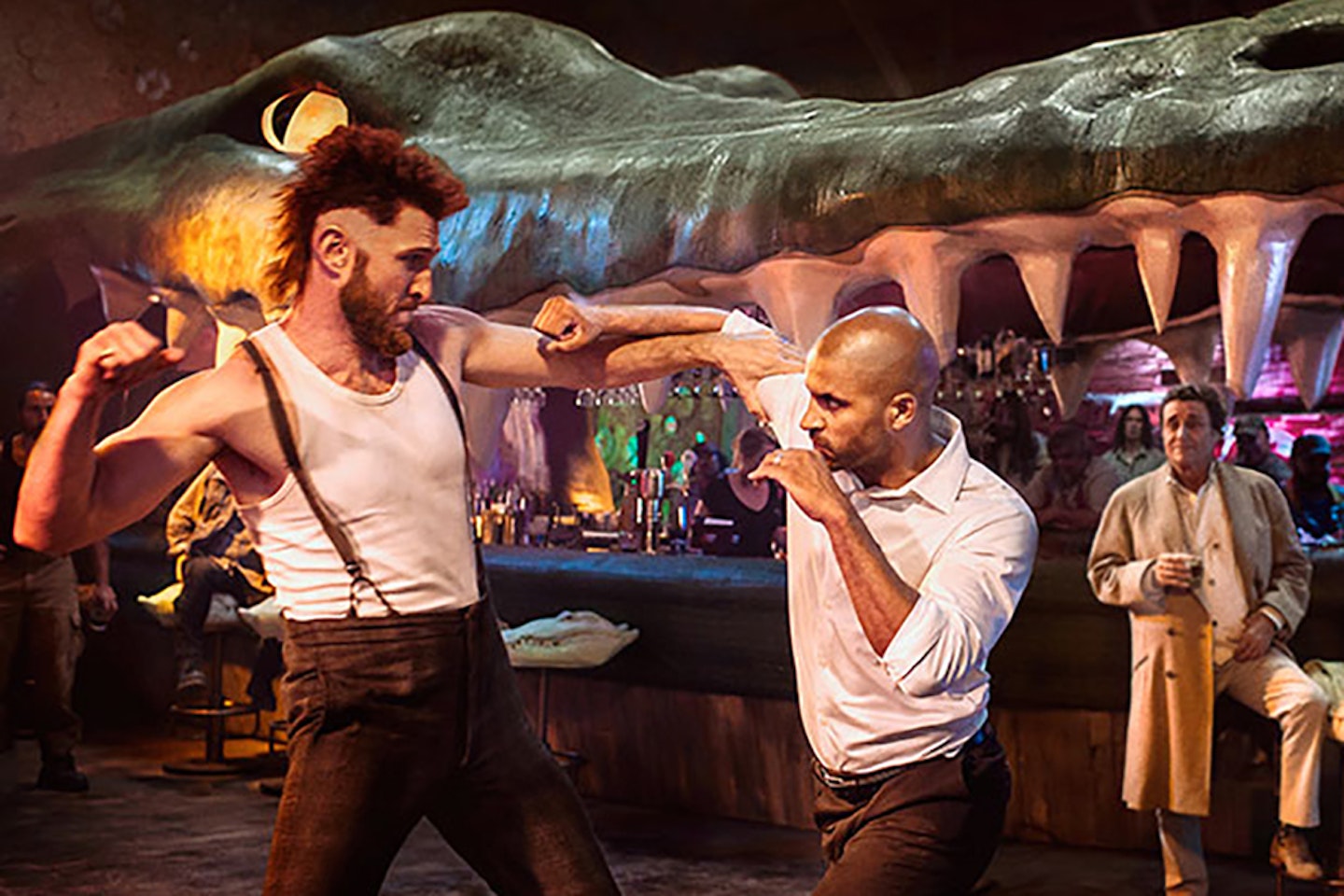
When you look at what you've accomplished, what do you feel it is that people are already connecting with?
Green: It's hard to say when you're so close to it. Our goal was always to try to recreate our own experience of reading the book, and the book is very immersive. If we've done our job right, the show is immersive and you can actually track your own thinking into the strange earth of Neil's book and of America seen through the lens of American Gods.
Let's talk a bit about some of the actors on this show. Ricky Whittle as Shadow Moon.
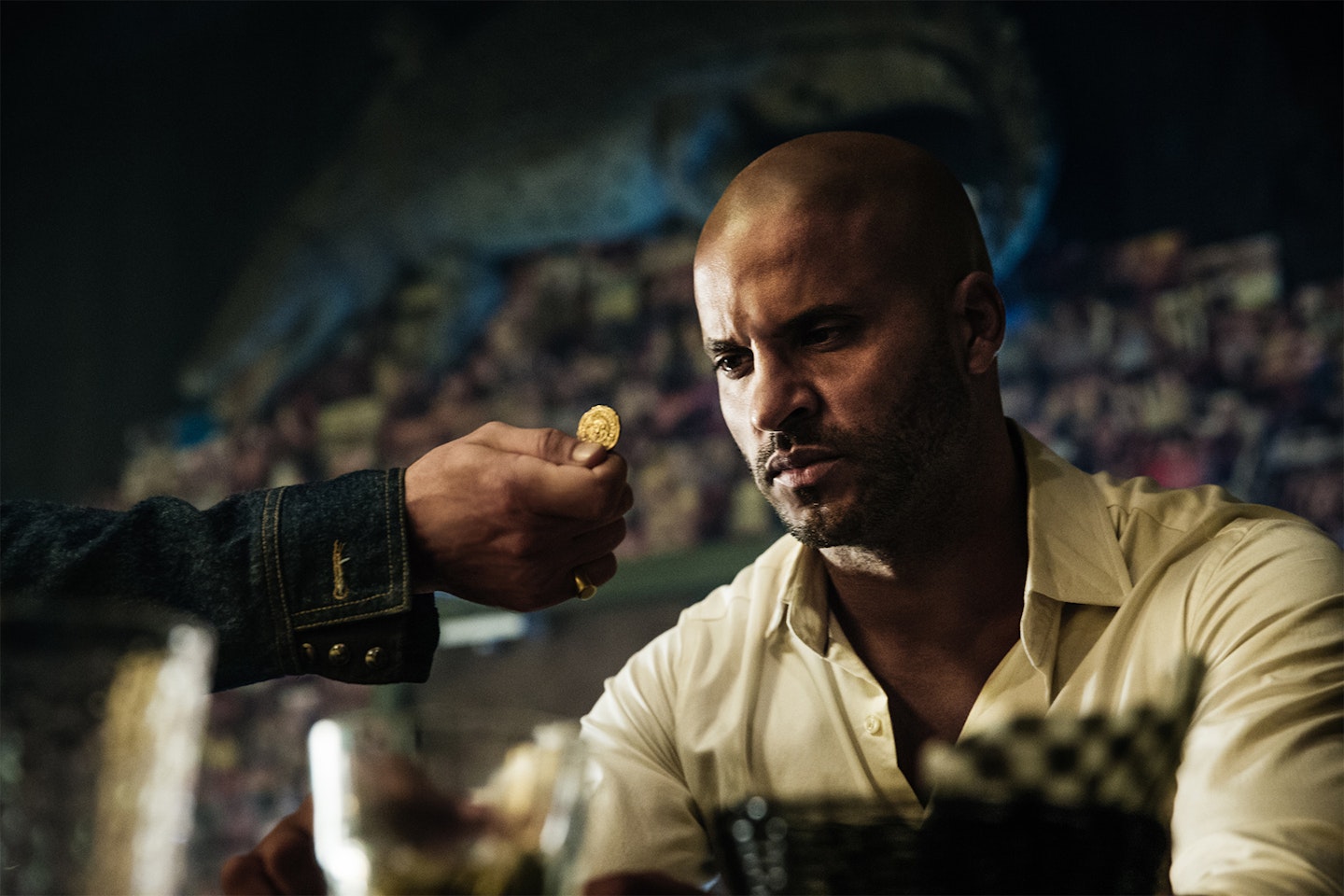
Fuller: Ricky absolutely earned this role. He auditioned fifteen times. Each time he jumped through a different kind of hoop, sometimes on fire, sometimes dripping acid, but he always made it through. Each time he came back, he was more and more in Shadow's skin. Whereas other potential Shadows were plateauing, Ricky continued to grow and coalesce into the Shadow that we know from the show. That was a treat to see, because Ricky is an athlete. He approaches acting with an athlete's discipline and it paid off for him and us.
Green: We always look at Shadow as being on a fairly classical faith journey. Someone who's coming at belief and understanding and approaching the numinous. First from non-belief, from pure atheism to agnosticism, experimentation to novice, to believer, to acolyte, to zealot, to even more.
Ian McShane as Wednesday
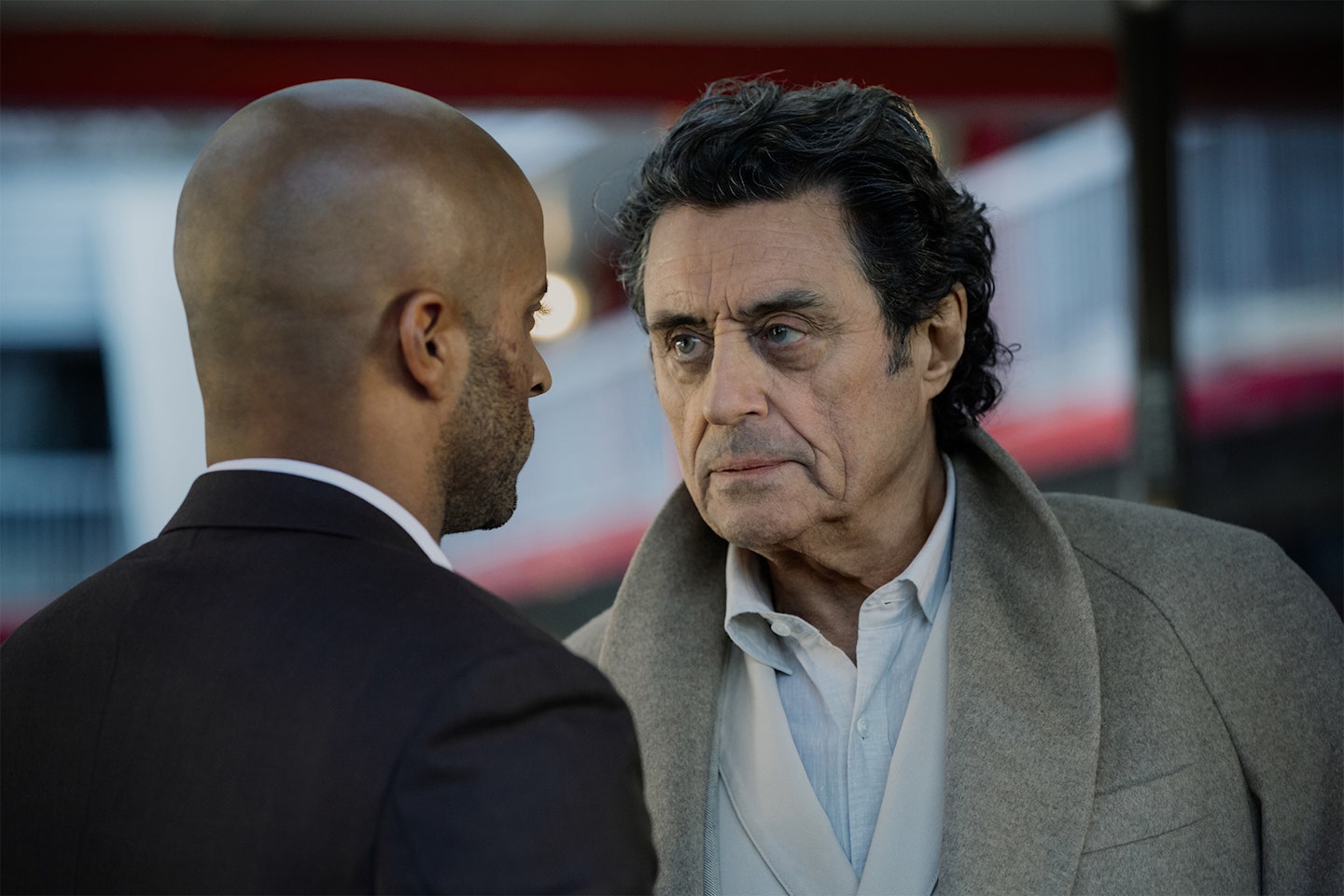
Green: He's one of those actors that if someone said to you, "Do you know that he's actually a god?", you'd say, "That makes absolute and total sense." There's just nothing surprising, in the best way possible, about imagining him as a formal deity. He brings power, discipline, he is an actor's actor. There isn't a single moment he wasn't prepared as fuck for. He takes everything very seriously, which means everyone around him has to bring their A game. As writers, you have to make sure that the lines you're writing for him are worthy of being read by an actor of that caliber. We all got on very well script-wise with him, because he really liked and admired the insanity of what we were trying to depict.
He has very unusual artistic tastes. He gets offered things all the time and is most interested in the things he hasn't seen or experienced before. One of the biggest compliments we got on the show wasn't necessarily from the critics, but was from Ian. I remember very vividly after our first screening of this show at South By Southwest, he'd not seen a frame of it. We kept offering him to and he said, "No, no, no. I want to see it with all the bells and whistles, baby." That's the direct quote. He leaned over to Bryan and I after the screening, and said, "That's the show I signed on for."
Emily Browning as Laura Moon
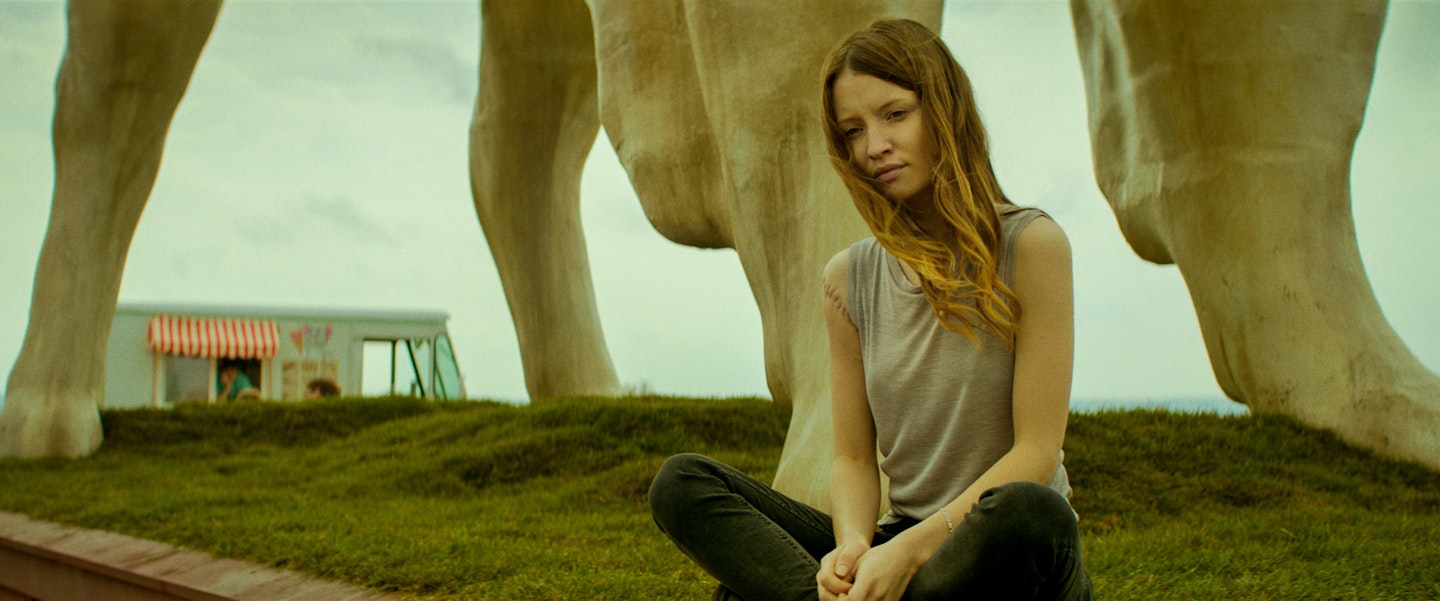
Fuller: Both Michael and I simultaneously fell in love with Emily sitting across from her at a meeting. She was so clear in wanting to portray Laura as authentically as possible and not fall into any "heart of the show" tropes that usually the wife character would fall into. It was inspiring to hear from her, her interpretation of Laura as a role model to young women to not give a fuck what other people think of them.
That was exciting for us and it was so insightful from a woman's experience, particularly a small woman's experience with men and the industry. There is a higher level of infantilization and archetyping with smaller-statured actresses, and Emily was dead set on not letting any physical perception of her size hold back that her character could be a massive asshole. In that assholery was actually taking care of herself and she was not the villain that you might interpret if you just realize that she was Shadow Moon's cheating wife, but was also somebody who had a bigger point of view on what life is and what it isn't. Emily really took us on that journey with the character. Helped us understand her better than we would have without casting her.
Crispin Glover as Mr. World
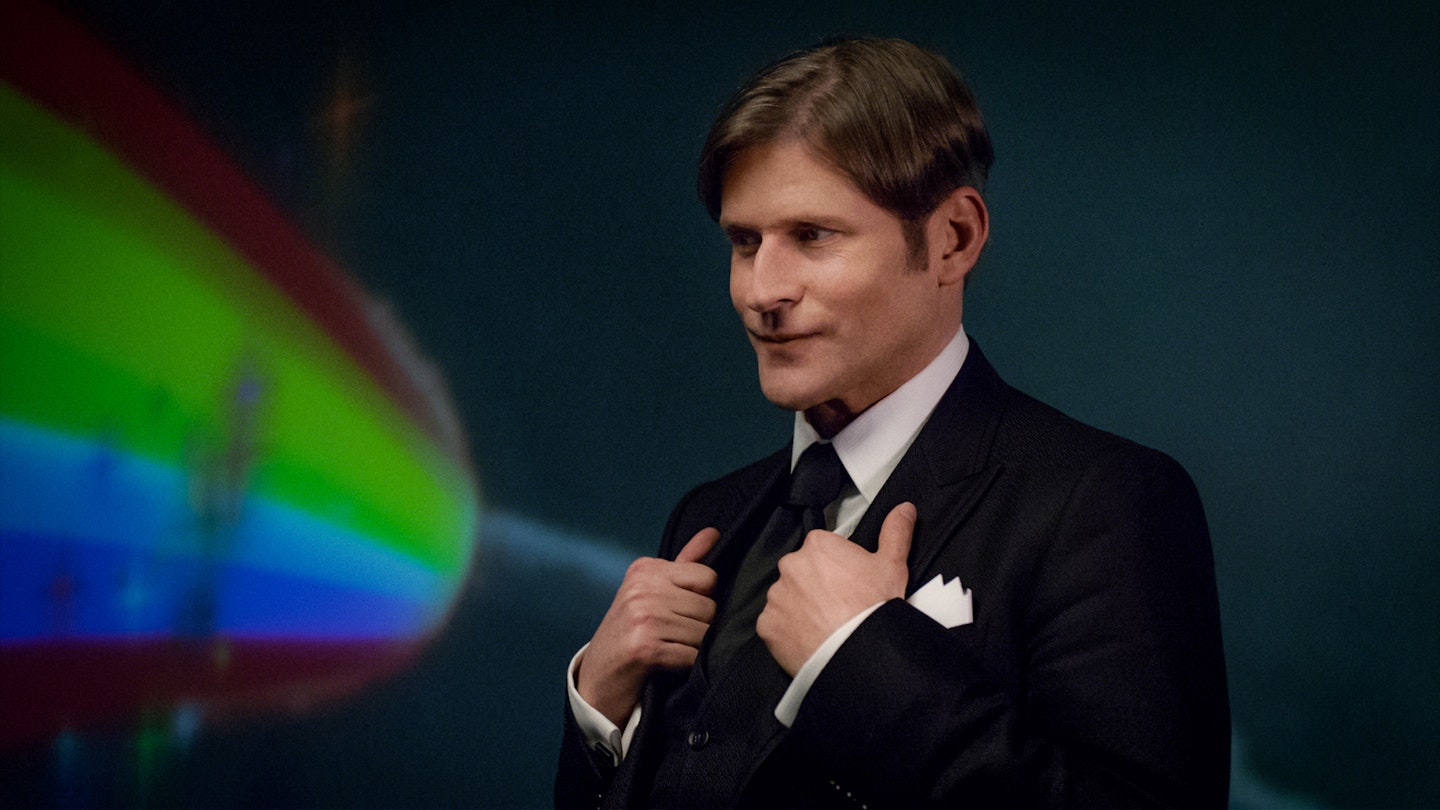
Green: We knew we were going into a character called Mr. World, who's very evasive and elusive in the book. We know to be fearful of him, but we wanted to think of attributes that would make that character and that role a worthy adversary for Mr. Wednesday. The thing we asked ourselves is, "What are the things Mr. Wednesday would be frightened of?" We started talking about just the idea of fear of everything about you being known. Living in a world where privacy has been so willingly hemorrhaged by people and that there are no secrets to be kept. Someone who believed in hegemony and the extreme social democracy and wanting to level the playing field of faith. Things that could be incredibly compelling instead of just outright villainous.
Those are the things that we thought might make Mr. Wednesday be afraid. Someone who was at his level, but could also make him start second-guessing his own rugged individualism. Those were the ideas that we started exploring. Then we started imagining, who's an actor who's iconic enough, strong enough, delightfully strange enough to inhabit all that? When we wrote it, the name Crispin Glover had come up and his voice was singing in the background notes of our mind as we were writing the lines. Flash-forward and our brilliant casting directors emailed and said, “You’re meeting him for coffee in the morning."
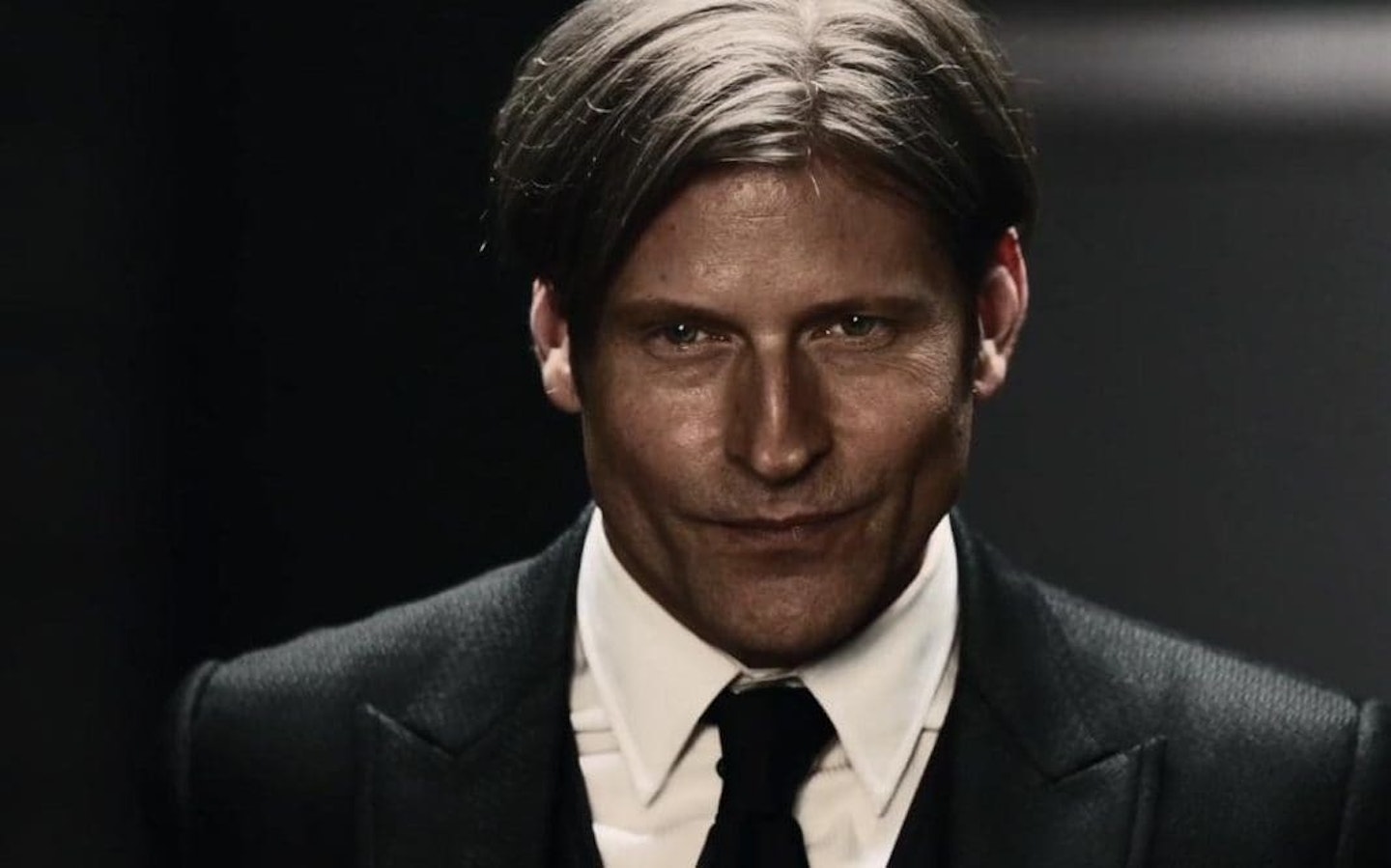
We were waiting for him in a coffee shop and it was blisteringly hot day and we were sitting there and our backs were sweating and sticking to our chair, and over Bryan's shoulder, through the window, I could see a very fine, very well-mannered, regal gentleman pulling up in a bicycle in a three-piece velvet suit and fedora, as un-sweating as any specific gentleman in my neighborhood, just in his beautiful black suit. He locked up his bicycle, he walked up to the front door and doffed his cap and in a very finely-mannered, very gentlemanly way, walked up to us and I kicked Bryan under the table and I'm just, like, "He's here and he's amazing."
So much of what we did on introducing that character on the screen was to try to recreate this really wonderful moment we had of finally meeting one of our favorite actors. Then just chatting with him about the book, about the themes of it. He is a very thoughtful man. He makes independent films on his own, because he has very strong opinions on corporatization of art and is as independent a filmmaker as possible. But he was open to the idea of joining into a series, because this is a show that discusses a lot of the things that he thinks very deeply about. He said he read the script quickly, he said yes quickly. He's the only actor we spoke to who, when we pitched them the idea of the show, which is very strange and usually takes a little bit of adjusting to, usually people hear it and say, "Okay I should probably read it and come to an understanding." He just nodded his head and said, "Okay, I understand."
He just lived very comfortably in a world of ideas independent from grounded reality. It makes him a joy to work with. Someone we learn from when we talk to, and he's been a pleasure.
Bruce Langley as Technical Boy
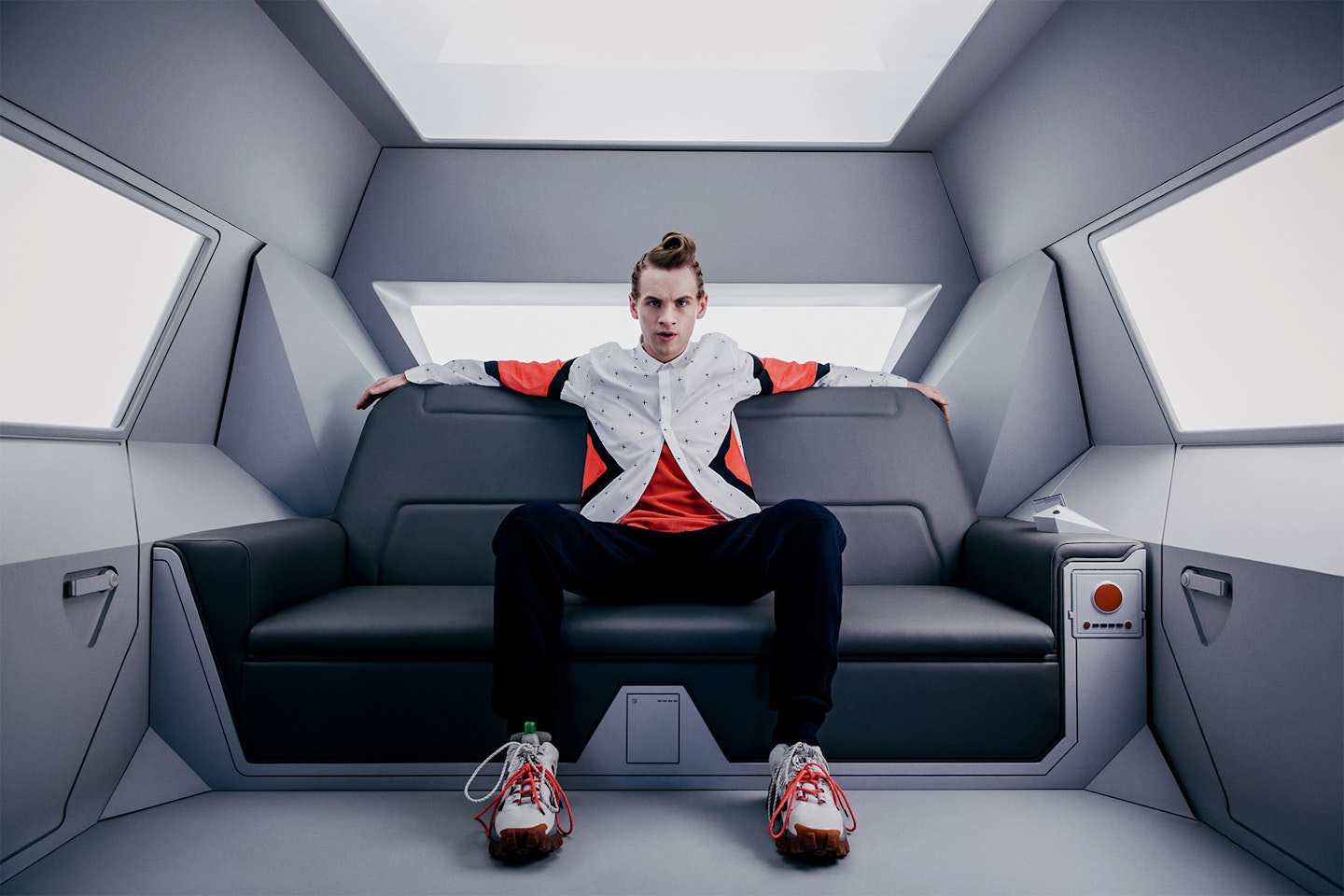
Fuller: Bruce secured that role as only the Technical Boy could — by a series of Skype calls. If there was ever an argument for technology in the casting process, it would be Bruce Langley. He came at it with such enthusiasm, which never dissipated. Still hasn't dissipated. He was in the running very early on for that role and was the guy that we kept on coming back to. Was so charming and delightful in the process, that we were very excited to make it official. And then see that enthusiasm explode when he got to the set and would notice that sets did not have ceilings and, “Oh my God, those are lights up there and that door doesn't have a backing to it.” It was adorable to see how green he was coming into the filmmaking process, and how excited he was to learn as much as he possibly could.
Yetide Badaki as Bilquis
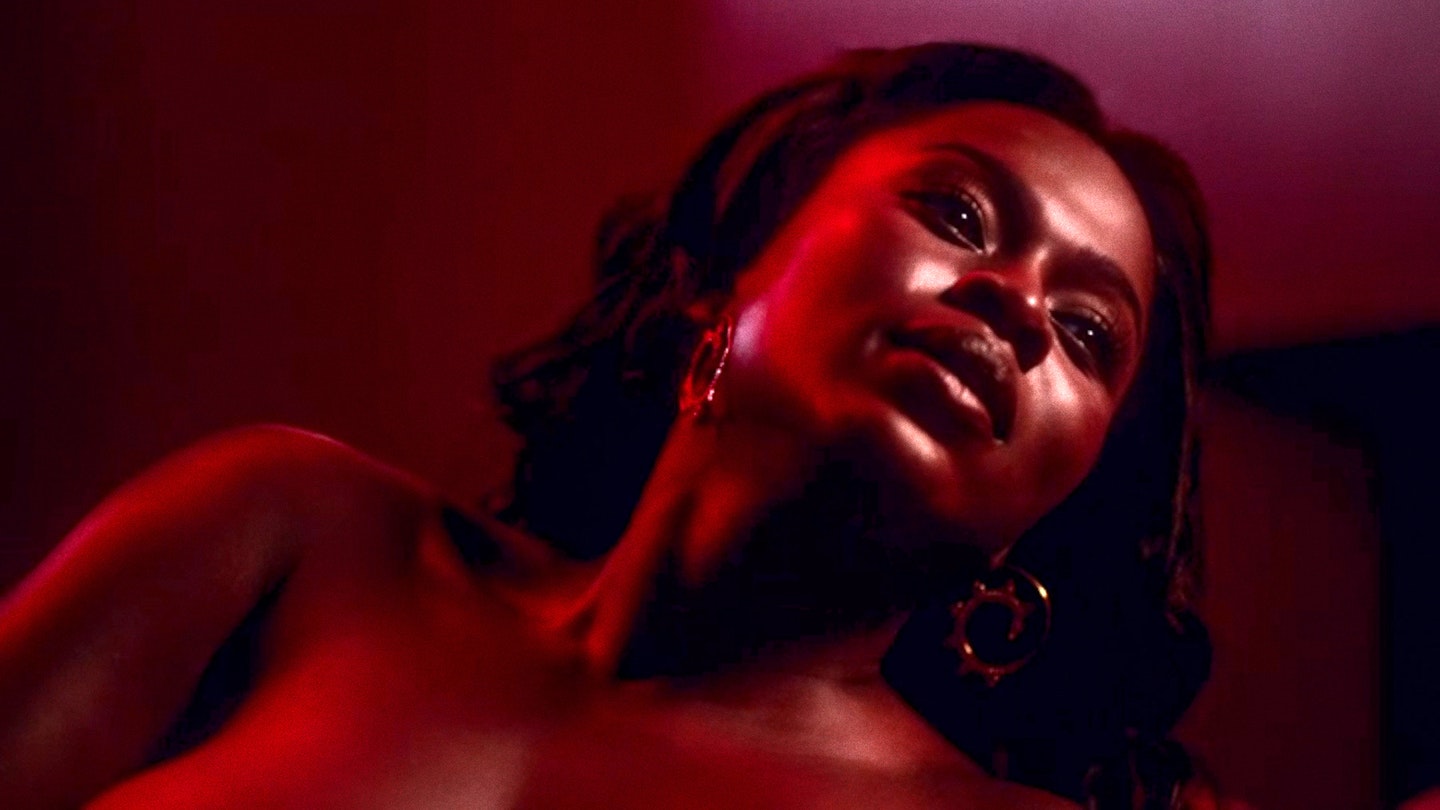
Green: She's an immigrant to the United States from Nigeria. She came here when she was fourteen to pursue a career in acting, which was an act of defiance for much of her family from where she grew up. There women were not given the same choices as women are elsewhere, and she made her life her own. We were very fortunate that she's someone who had been studying her craft and came to us as a fully formed adult movie star-caliber actor who just hadn't had the opportunity to shine in the way she shines from moment one on this show.
Her audition scene was the scene from the pilot that is very, very well-known and much discussed. It wasn't just that she handled it with the power and the sexuality, which is obvious. It's how much integrity, empathy, and vulnerability she brought to it. She also helped us understand the role in ways we hadn't. We owe a lot to her. One of the things that we've thought about a lot, how was it that someone who is such an incredible actor as her, doesn't have as large a resume? You don't get a lot of characters that are twelve thousand year old ancient sex goddesses that celebrate the type of power she has. I'm sure she could play a brilliant lawyer on a procedural show, but it would be the type of role that would showcase only a fraction of how deep her powers go. We're excited that she's making something of a debut right now and we can't wait to work with her more and more.
Gillian Anderson as Media
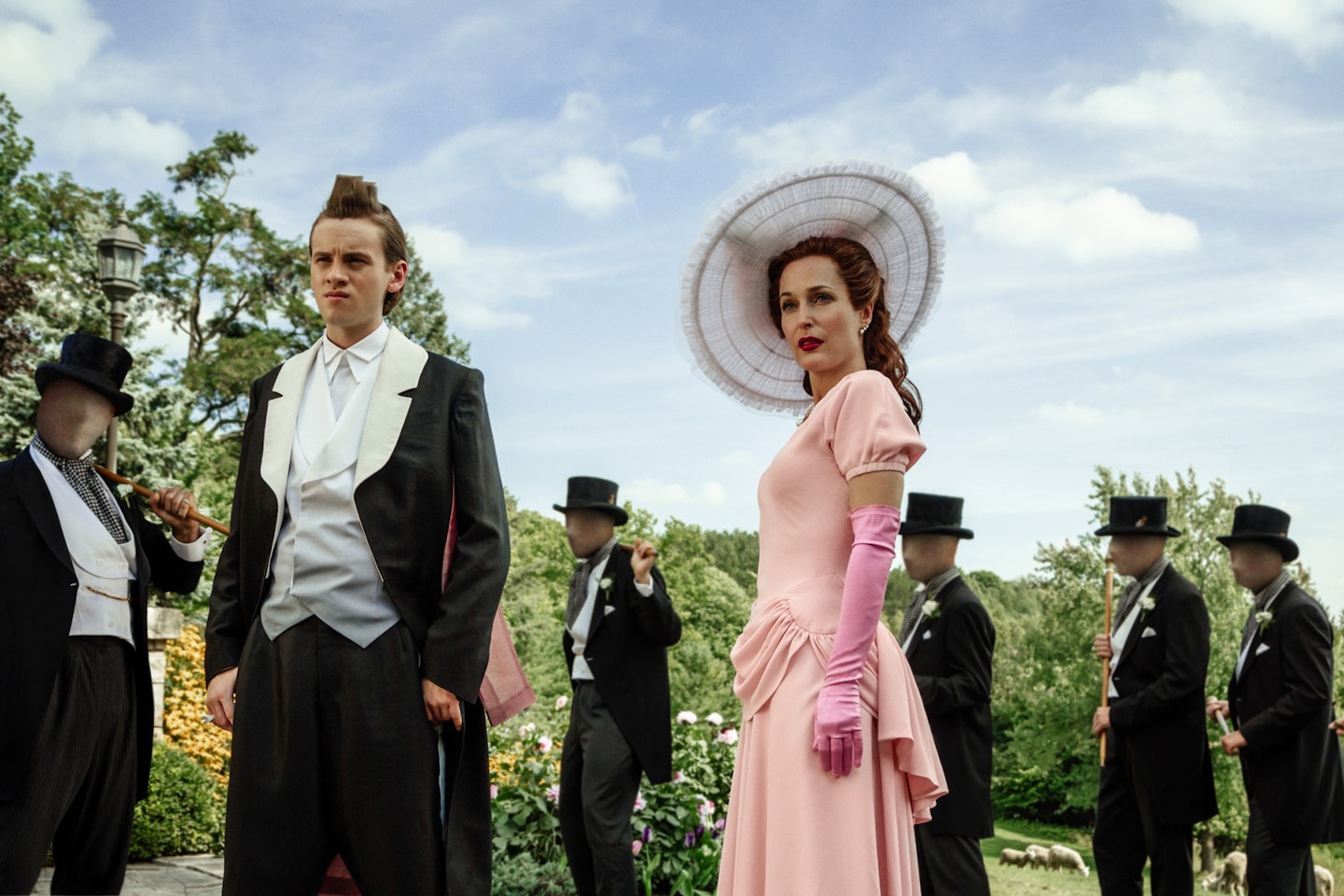
Fuller: We knew very early on that Gillian had to be part of this show and we wanted to see her like we had never seen her before. Since she had already done a photo series where she was portraying Lucy Ricardo, we had that image in our mind, so it was a very short step to casting her as Media, whose first incarnation in the book is as Lucy Ricardo. We called Gillian and told her what we had in mind for the character and how the character was going to manifest as a different dead celebrity every time we saw her; that it would give her an opportunity to create a hybridization of the Media character and the personality of the dead celebrity, and she was instantly on board. She's a big fan of Neil Gaiman's and we had a lot of fun working together on Hannibal.
She surprised us every time she took on one of these characters and inhabited their personality, but still maintained who she was as Media. I think Marilyn Monroe was the biggest transformation. She does Lucy Ricardo, David Bowie, Marilyn Monroe, and Judy Garland. She does, in one episode, David Bowie and Marilyn Monroe. We need to submit that to the Emmys.
Pablo Schreiber as Mad Sweeney
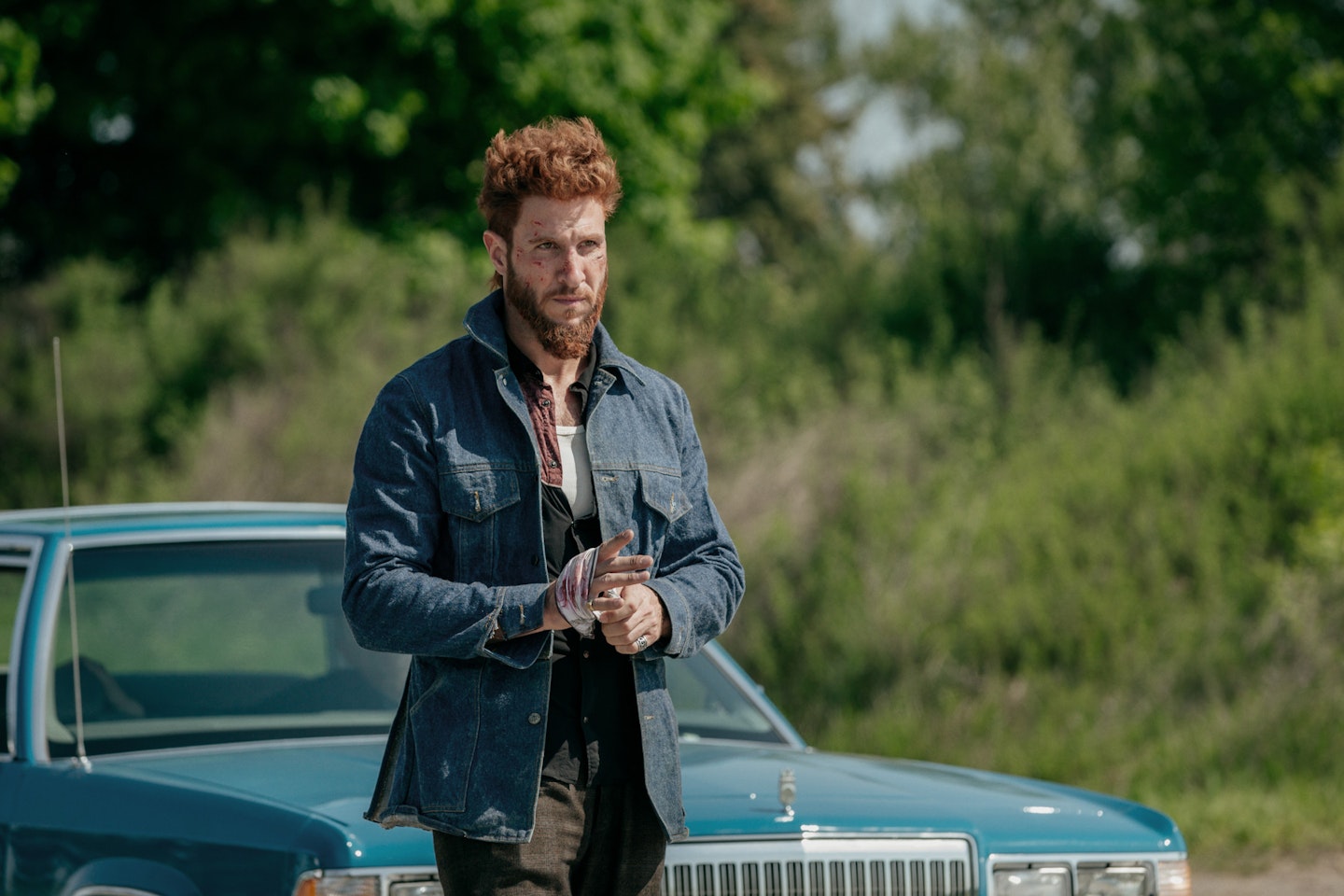
Green: Pablo is one of the most adored actors I've ever met or worked with, and I don't just mean by us. It's literally everywhere he goes, which is so funny because he's currently best known as playing one of the most hated people on the screen, in his role as Pornstache on Orange Is The New Black, and he's played some other horrible people. And yet, everywhere he goes, everyone adores him and for very good reason. He's a lovely man. He's a great-looking man. He's a deeply talented man. He is so funny onscreen. He's an absolute perfectionist in his work and he brings perfection. There's a line from the book that we've read a thousand times. It's, "How did you do that coin trick?" He says, "With panache."
Even Neil said it was always a good line that he was proud of it, but it wasn't one that he ever thought of as his proudest lines. Yet he found himself laughing at a joke he wrote twenty years ago, because it's being delivered so well. That's because Pablo is a unique guy who finds his spin every time. We were very lucky to have him come aboard.
Omid Abtahi as Salim
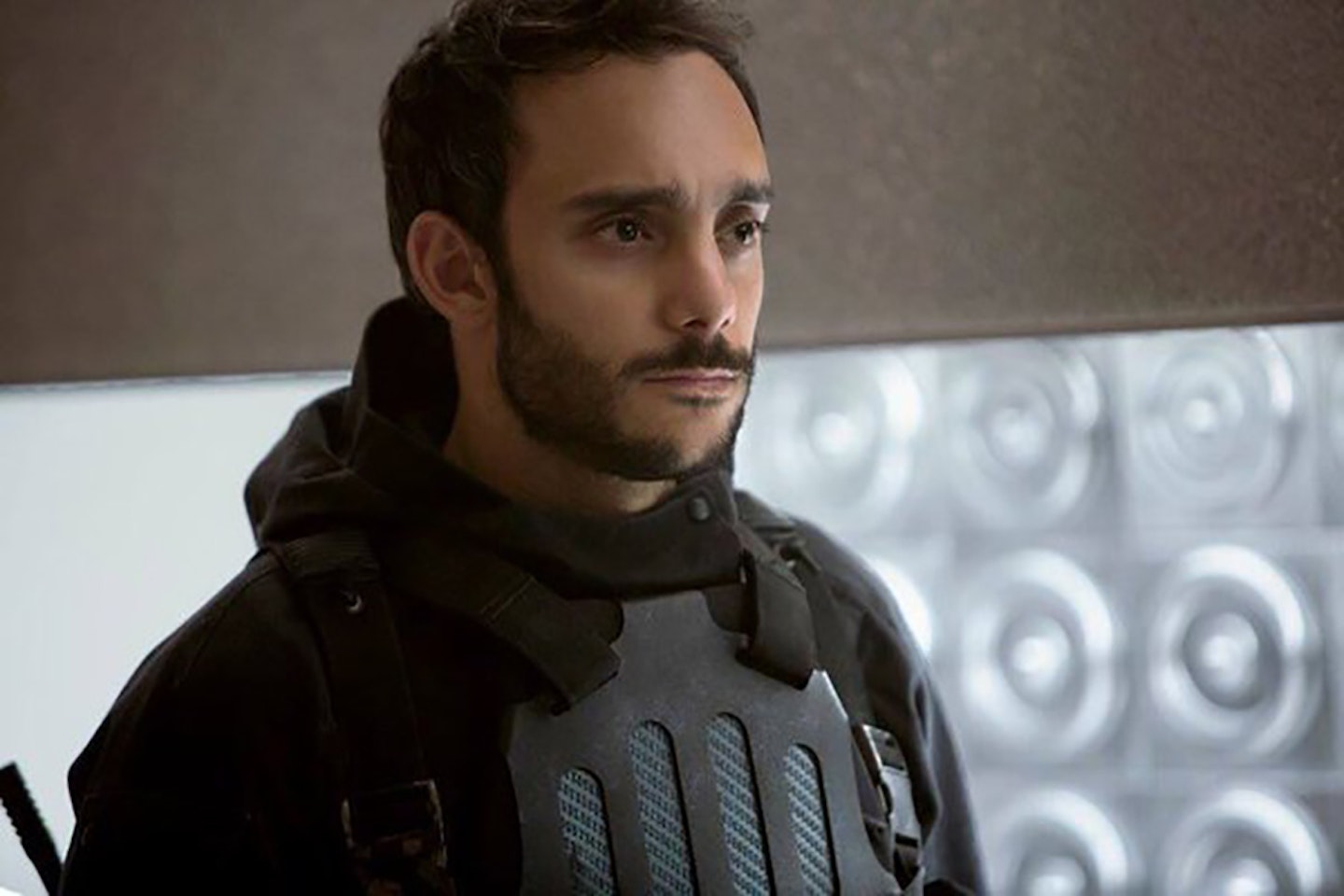
Green: Bryan and I both worked on the first season of Heroes. That's where we met him and in the original pilot for that show there was a storyline that was eventually cut. The network didn't like it and they were wrong, because it was the storyline that had Omid who was a character who had powers emerging. He was so fucking good at it, that it broke our hearts to see this incredibly sensitive portrayal be taken out. He was summarily cut from the show for no reason of his own; it was just the network thought it was too dark. As a result, we'd always track every time we'd see him in anything else. We're, like, "God, that guy's good." Now we finally get to have him in a series. He's such a thoughtful, mindful actor. He's so sweet and sensitive onscreen. Again, he and Mousa, who played The Jinn, just took something on the page and made it so compelling. It's a set of sequences we're so proud of and we owe it to them.
To wrap this up, how would you describe the differences between old gods and new gods as a whole?
Fuller: It's pretty gray, because they're both after the same thing which is people's time and attention. They both are providing a form of existential crisis aversion for those who worship. The old gods are a little more narcissistic with wanting you to direct attention at them. The new gods are a little sneakier in that they say, "Direct attention at this screen that will give you insight into yourself and your social circle," but really you're praying at their altar.
It feels like the faith bargain is a little more honest with the old gods, and the new gods are giving you something that you never knew you needed, which is a teat to nurse on your narcissism.
